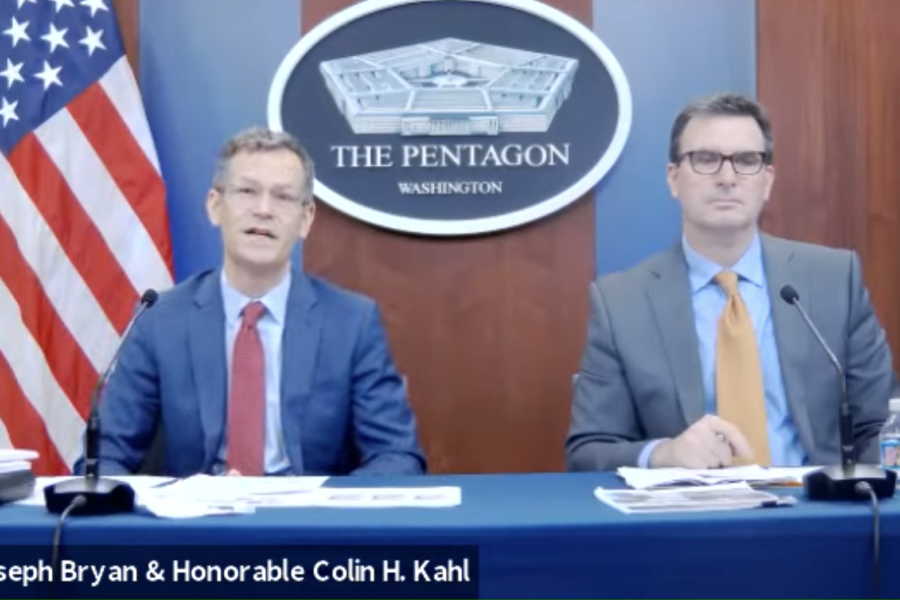The Defense Department’s policy team will be reorganized in the near future as the Pentagon continues its push to emphasize climate change as a national security threat.
Undersecretary of Defense for Policy Colin H. Kahl, speaking Oct. 29 at a virtual event hosted by the think tank New America, hinted at the coming reorganization in his office by saying a “senior person” would be in charge of a range of climate-related issues, to be announced in the next few weeks.
“We’re going to be making some organizational changes in the coming weeks and months to make sure that we have an organization that champions these issues and that it is resourced to champion these issues, to make sure that it gets integrated into all of the various documents that we oversee—the National Defense Strategy, but also the contingency planning guidance, the combatant command campaign plans,” Kahl said. “There’s a whole bunch of ways in which policy can drive prioritization.”
Elsewhere in the conversation, Kahl added that he wants his office to address “issues like climate change and energy in the Arctic.”
Kahl’s comments come just a few days after the Pentagon released its DOD Climate Risk Analysis, a document intended to “paint the landscape of the strategic risk that climate change is causing across the board,” Kahl said.
The climate analysis detailed a less stable future with new risks for the military as rising temperatures and ocean levels, changing precipitation patterns, and more severe weather events are likely to create ripple effects.
Most immediately, these effects could challenge readiness, as Kahl pointed to the flooding of Offutt Air Force Base, Neb., in 2019 and the effects of Hurricane Michael across a number of installations in 2018.
“If you saw the wreckage on these bases, I mean, frankly, no terrorist organization has done that amount of damage in the past few years to American installations in the United States, but climate change has,” Kahl argued.
But the issue isn’t contained to the homeland, said Joseph Bryan, the Pentagon’s senior adviser for climate. If the military can improve its energy efficiency, it can reduce its carbon footprint—and be more resilient on the battlefield.
“The more efficient we can be at the tactical edge, the more efficient we can be in our operations, the less we’ll require of our logistics, and the more we can mitigate the risk for contested logistics,” Bryan said. “Now, that is essential to the mission. It also happens to be quite good for the climate.”
Linking readiness and mission capability to the challenge of climate change, Bryan added, has been a key part of his effort to raise the issue’s importance for leaders. It’s also Kahl’s response to criticism that climate change efforts are distracting DOD from its strategic competition with China.
“These issues are more intertwined than, I think, sometimes the skeptics or the critics may think,” Kahl said. “First of all, in places like the Arctic, climate change is actually accelerating competition with peers and near-peer competitors—not just Russia, which is an Arctic nation, but also China which has aspirations for commercial and resource endeavors in the Arctic.
“ … Some degree of global warming is inevitable, which means there will be a race for resilience, a race for adaptation,” Kahl added. “And the countries that are able to roll with the punches, and the militaries that are able to roll with the climate punches better, will be in a better competitive position.”
Kahl also said many of the resiliency measures the Pentagon can take to combat climate change are steps it should be taking to defend against China as well—issues such as securing the supply chain and building up infrastructure.
“We don’t see any trade-off between the investments that we need to make on the climate front and the challenges that we need to address on that front and making sure that we remain laser focused on China as our pacing challenge,” Kahl said.
